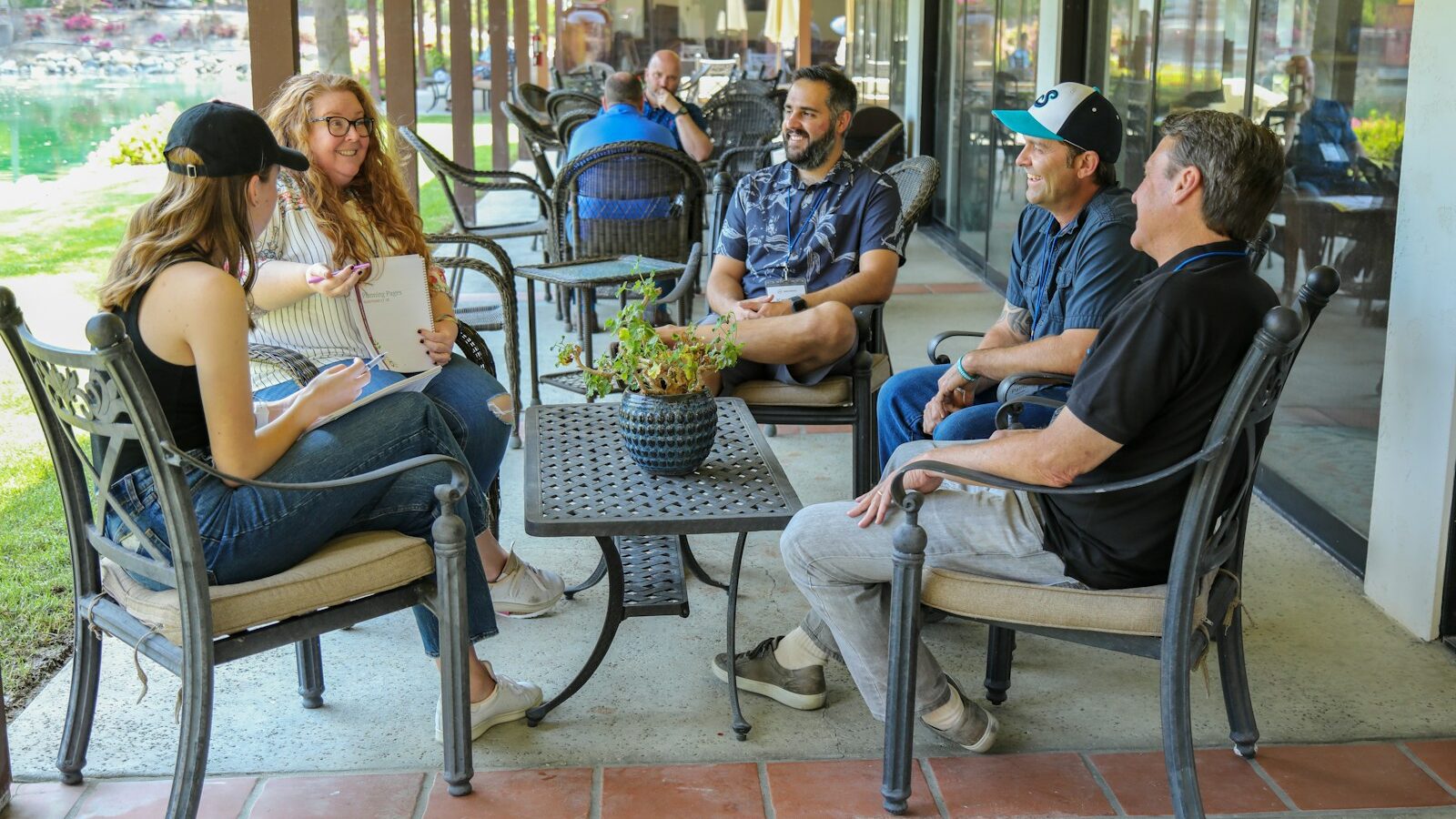Questioning our faith feels unsettling and often exhausting. Doubt creeps in at first but can quickly become an overwhelming burden as we wrestle with questions like:
Is God even good? Does He care about me? Is God really there?
A crisis of any kind is marked by intense difficulty, trouble, or danger. In these moments, it’s natural to feel a range of emotions, from sadness to confusion to grief to anger. No matter what has caused us to ask hard questions about our faith, it’s significant to understand that we are not alone. Throughout Scripture, we learn of heroes of the faith who have also deeply struggled.
But there is good news. Jesus welcomes our questions and responds with compassion to our doubts.
Here are five signs that your faith is in crisis and some resources to help you navigate your unique faith journey.
1. Our prayers are conditional.
In Mark 9, a father of a sick boy comes to Jesus’ disciples for healing. From the context, we know that this boy has been tormented for his entire life by an evil spirit. The boy’s father calls out to Jesus, “But if you can do anything, have compassion on us and help us.” (Mark 9:22)
This father’s struggle to see his son healed has left his faith weak and hope sparse. Maybe you can relate. Whether we are struggling to deal with a difficult situation or searching for truth, we might find that our prayers feel half-hearted or tinged with conditional language. (God, if you… then I will…)
What might it look like to engage with God in these moments, taking time to ask God our questions and listen for his voice of encouragement, comfort, and wisdom? Talking openly with and listening to God in times of crisis can strengthen our trust in God in moments that may otherwise tempt us to turn away from him.
2. Your fear causes you to stumble.
Complex spiritual questions can make us feel like we are in the middle of a storm. When our foundation becomes shaky, it’s natural to feel like we don’t know where to turn or what to do.
Peter, the Rock of the early church, had a crisis of faith in Jesus’ very presence. The disciples were crossing a lake on a boat and saw Jesus walking on water. Peter needed to know what was going on.
“Lord, if it’s you,” Peter answered him, “command me to come to you on the water.”
He said, “Come.”
And climbing out of the boat, Peter started walking on the water and came toward Jesus. But when he saw the strength of the wind, he was afraid, and beginning to sink he cried out, “Lord, save me!” (Matthew 14:28-30)
Amidst the storm, it can be hard to see Jesus’ outstretched arms waiting to rescue us. Gratitude can help to combat moments of fear. Consider keeping a gratitude journal. Not only does it cause us to consider how God is actively engaged in our lives today, but as we read past entries, it reminds us of how he has been faithful over time.
3. You feel like giving up.
The prophet Elijah was used powerfully by God—calling down fire from heaven and speaking boldly to God’s people. But in 1 Kings 18-19, we see that he is being pursued in the desert and sinks into depression.
I have had enough! Lord, take my life, for I’m no better than my ancestors. (1 Kings 19:4b)
Elijah’s story may feel familiar. Disappointments, unanswered questions, and unmet expectations caused even God’s chosen prophet to question God’s presence and goodness. Much like Elijah, we can be easily driven into isolation during these moments. Though they cannot solve all your problems, leaning on Godly friends and family in times of depression and anxiety can uplift us in ways isolation cannot.
4. You feel like you are hiding.
Before Gideon became a mighty warrior and one of the greatest judges in Israel’s history, he was timid and afraid. In Judges 6, when God calls him, he is underground in a winepress hiding from his enemies. When God affirms that he’ll strengthen and send Gideon, his reply is:
Please, Lord, how can I deliver Israel? Look, my family is the weakest in Manasseh, and I am the youngest in my father’s family. (Judges 6:15)
We may not be hiding underground, but shame, fear, or questions about our growing faith might leave us fearfully hiding our truest selves. The best remedy for this is to be intentionally vulnerable with God and with others. Often our fears of inadequacy are rooted in lies we’ve believed about ourselves and God. Spending time with him and trusted friends and sharing how we feel can allow God and others to refute these lies with Biblical truth.
5. You are skeptical of God’s promises.
Abraham, the Father of God’s chosen people, was promised descendants as plentiful as the sand on the beach. But as years passed without any children, this felt impossible. Finally, in Genesis 18, angels arrived on his doorstep to announce that the time had finally come for God to fulfill his word. Abraham’s wife, Sarah, responded with cynicism and disbelief.
The Lord said, “I will certainly come back to you in about a year’s time, and your wife Sarah will have a son!” Now Sarah was listening at the entrance of the tent behind him.
Abraham and Sarah were old and getting on in years. Sarah had passed the age of childbearing. So she laughed to herself: “After I am worn out, and my lord is old, will I have delight?” (Genesis 18:10-11)
It’s easy to feel like Sarah, inclined to snicker at, roll our eyes, or just secretly doubt God’s promises. In these moments, what might it look like to embrace stillness and waiting as a spiritual practice? Stillness and waiting can be a daily act of trying to quiet ourselves before God as a prompting to trust. It reminds us that God’s timing and plan are better than our own.
Related Articles

How to Start and Lead a Life-Changing Group Bible Study

7 Essential Tips for Deepening Your Bible Study


